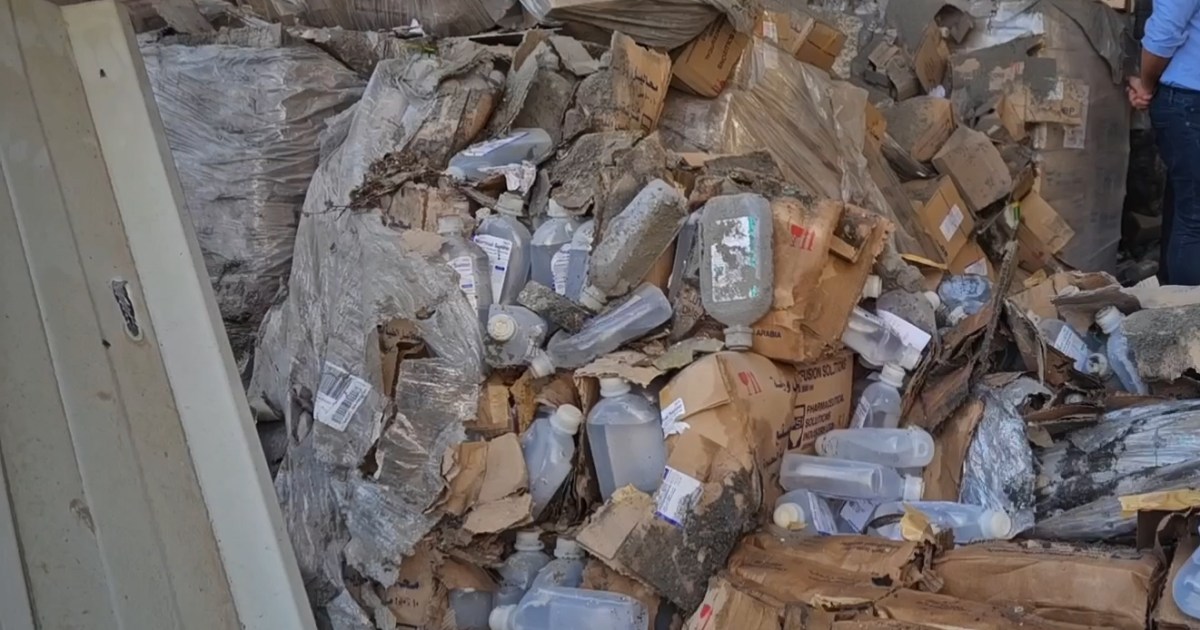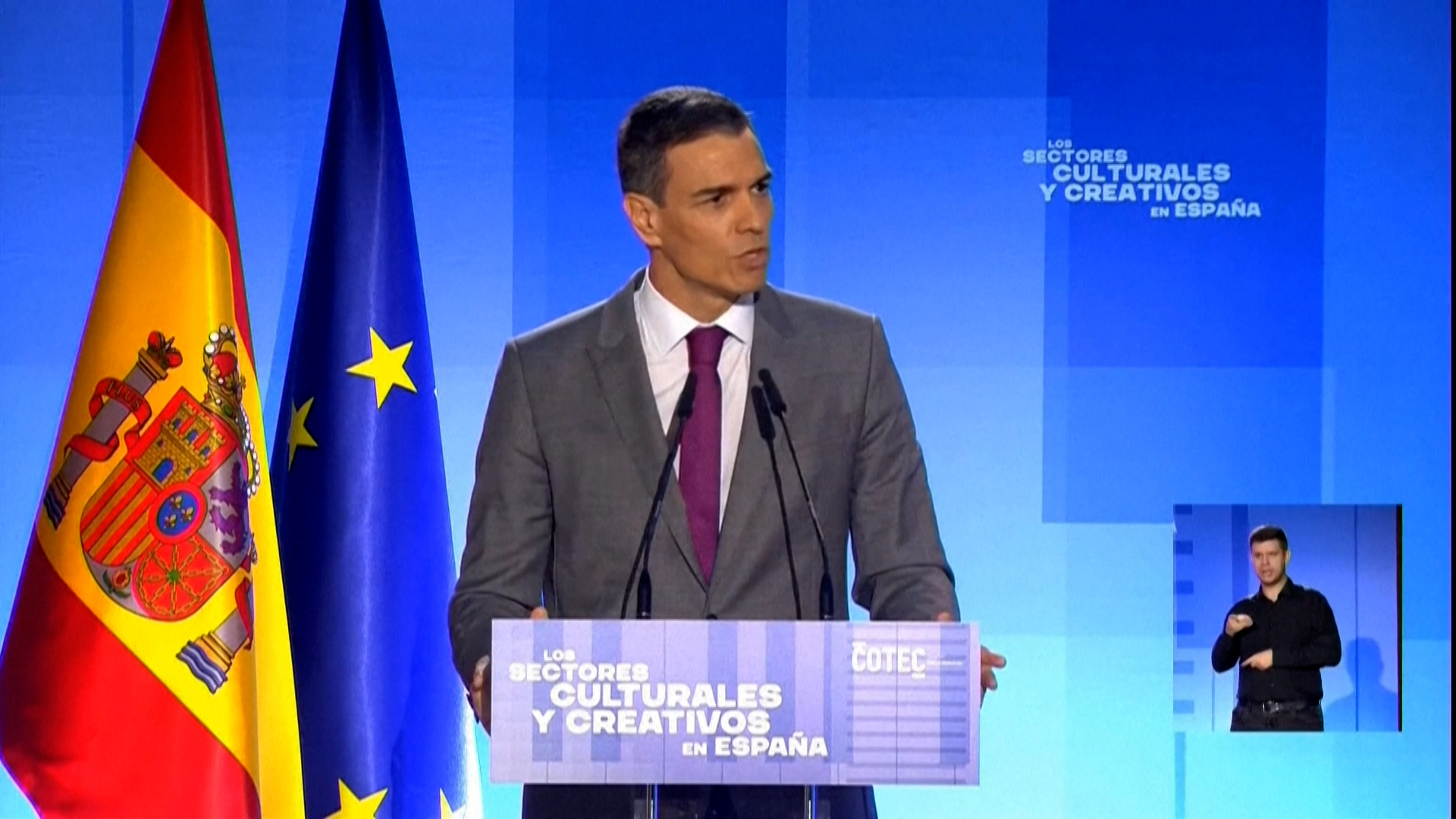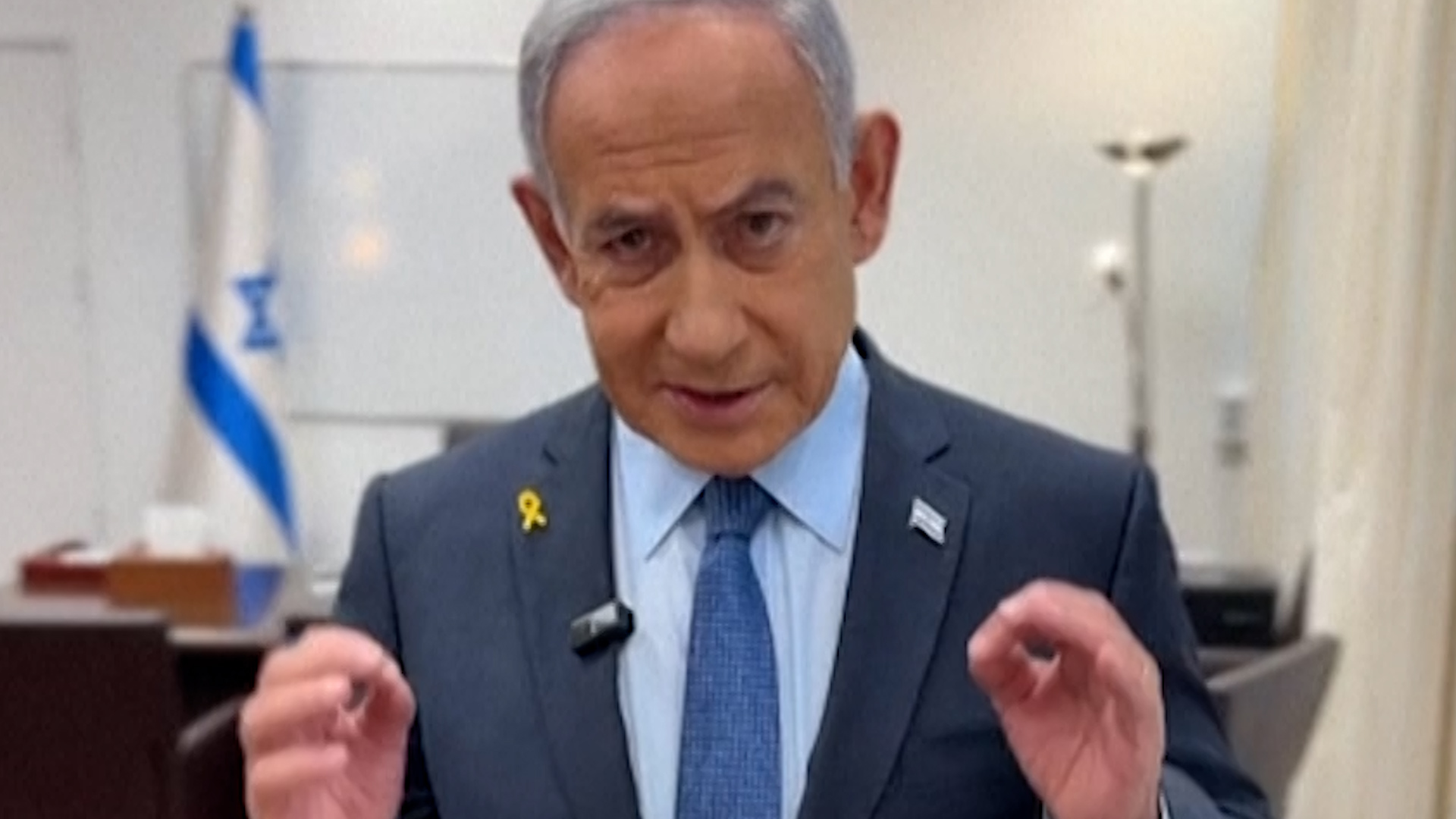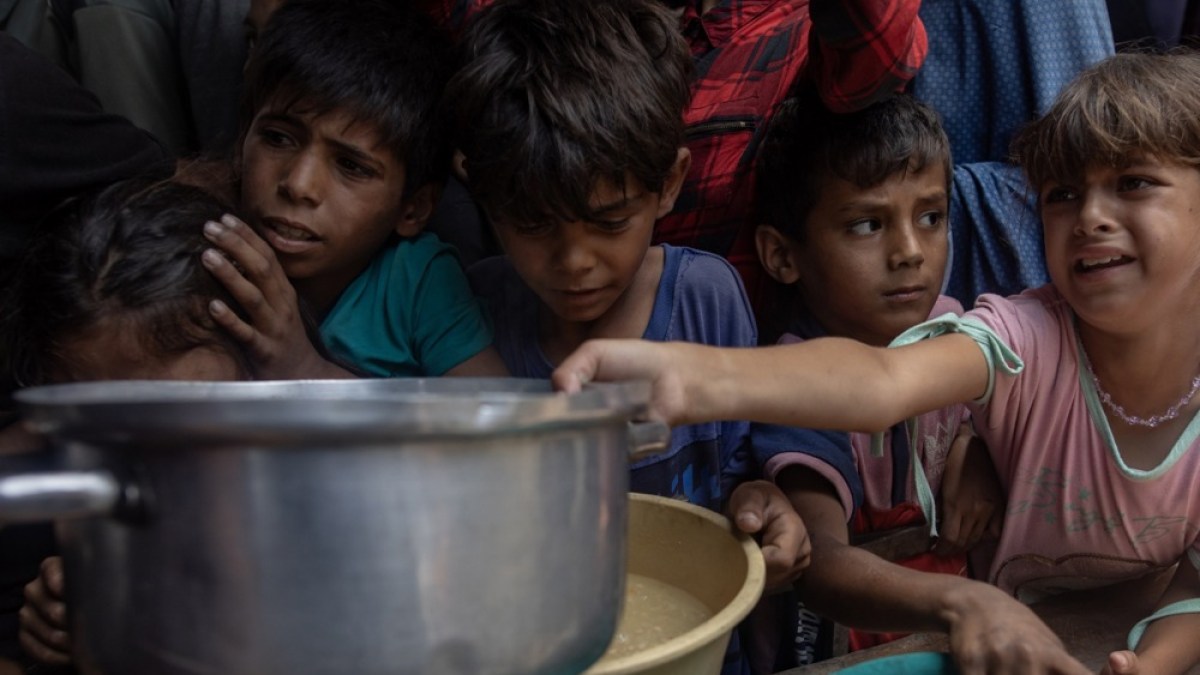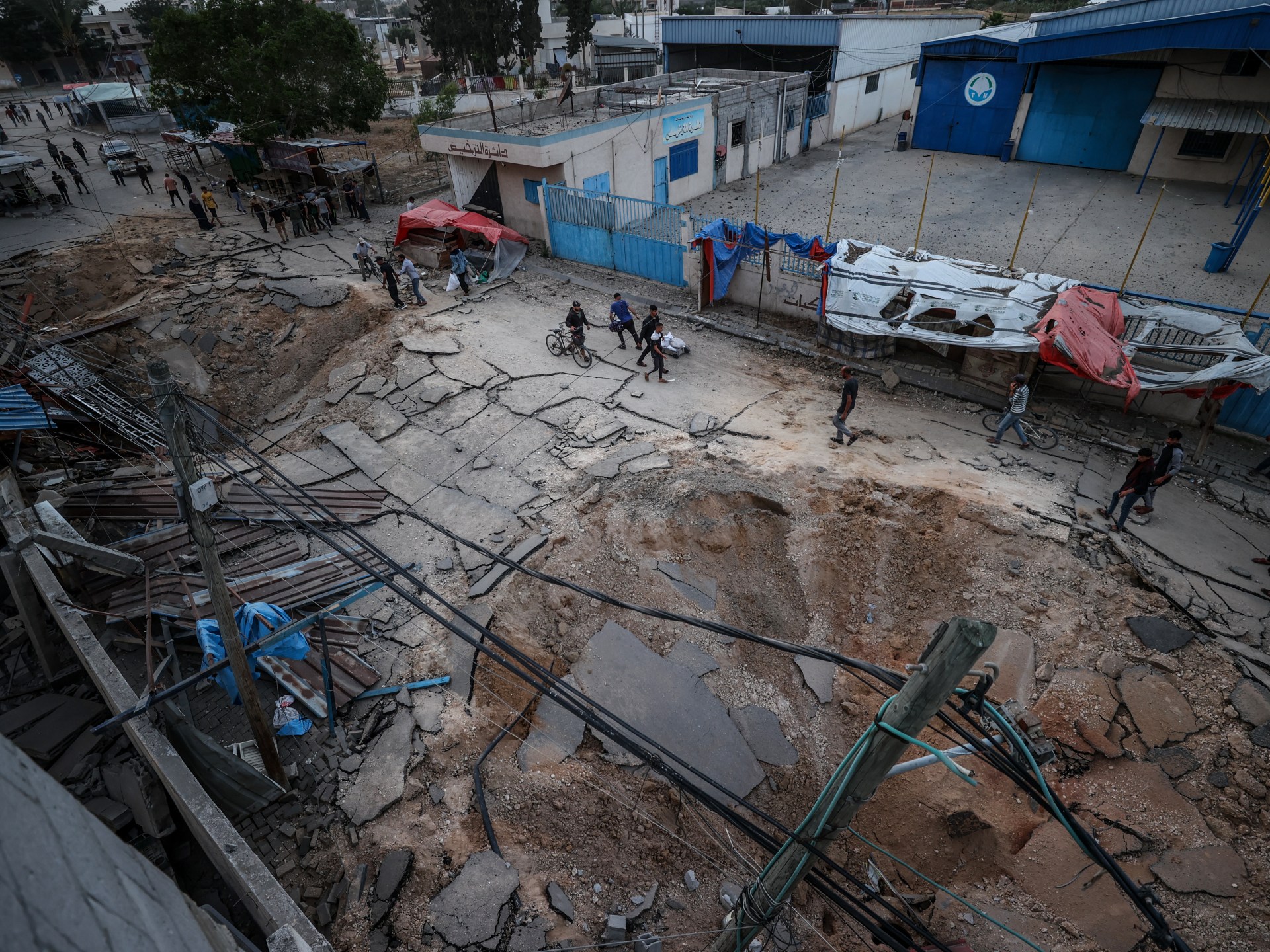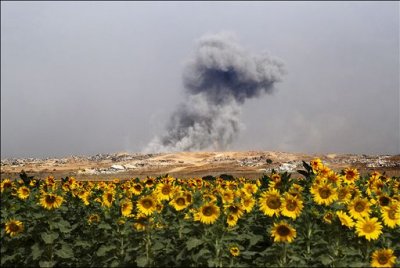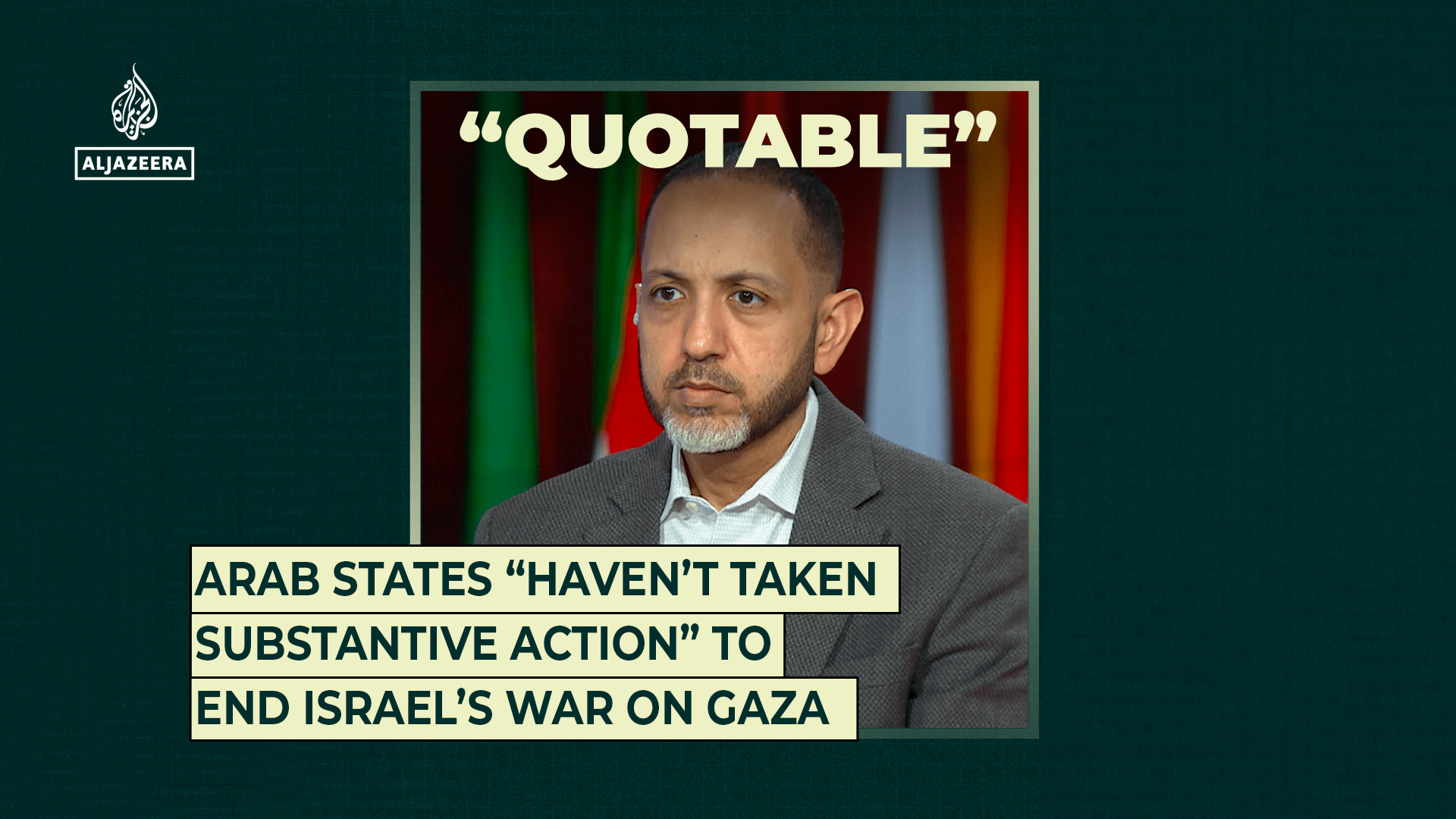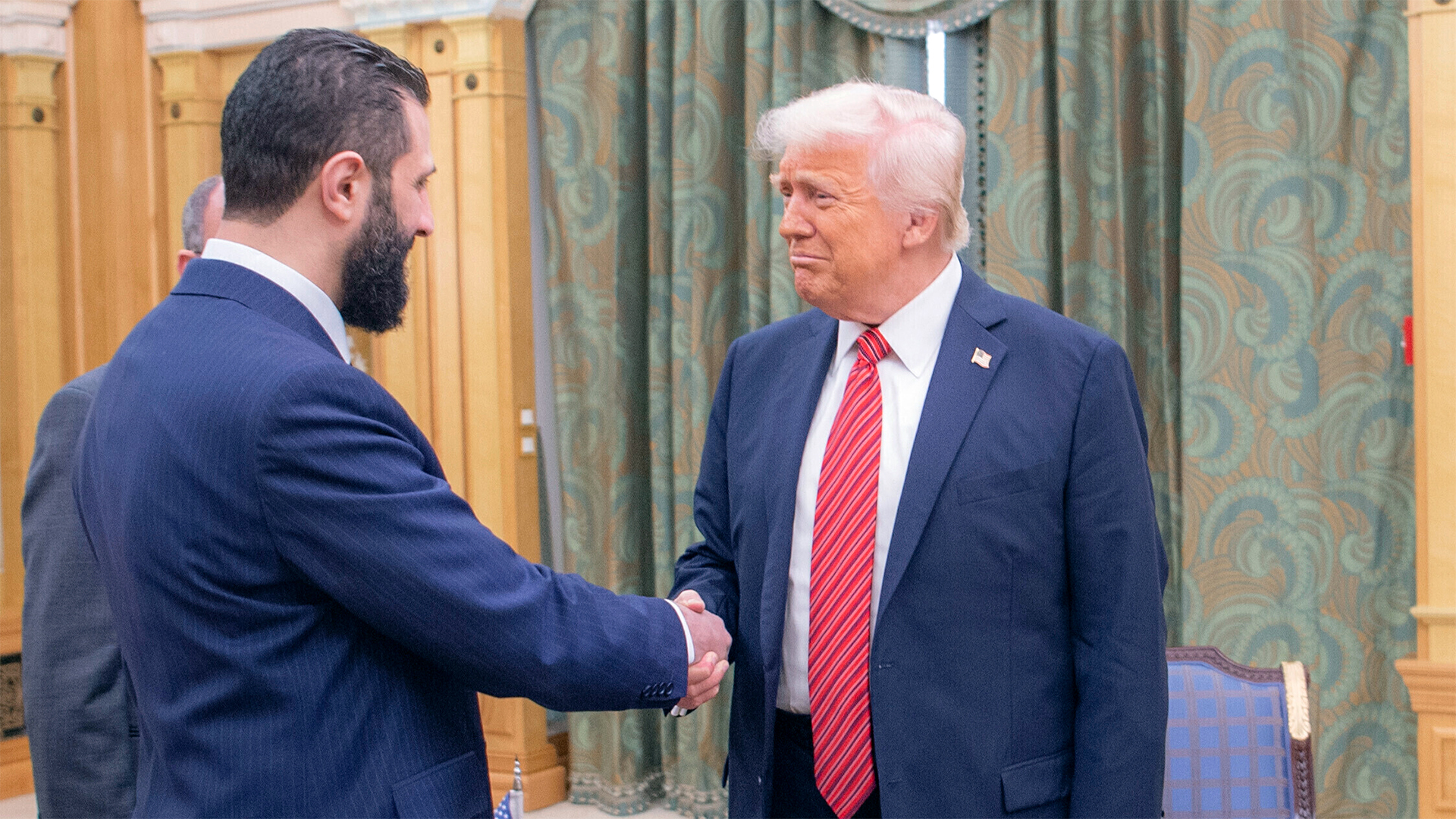Israel belongs in Eurovision | Israel-Palestine conflict
Just when you thought Eurovision had reached peak absurdity – with its glitter-drenched cliches, outlandish lyrics, and performances that make your local karaoke night look refined – it sank even lower in 2025. This year, Israel not only participated amid its ongoing assault on Gaza and international law, it nearly won.
In the lead-up to the contest, activists across Europe called for Israel’s exclusion. Seventy-two former Eurovision contestants signed an open letter demanding that Israel – and its national broadcaster, KAN – be banned. Protests, petitions, and campaigns swept across the continent, urging the contest to uphold its supposed values of “European unity and culture” rather than spotlight a state accused of systematically starving and bombing a captive population of two million.
But Eurovision did not listen.
Instead, it handed the stage to 24-year-old Yuval Raphael – a survivor of Hamas’s October 7 attack on the Nova Music Festival – who won the public televote in most countries and placed second overall, edged out only because, unlike the public, most professional juries preferred Austria’s entry.
Understandably, Israel’s surprising near-victory triggered a wave of backlash. With populations that have been most vocal in their criticism of Israel’s actions in Gaza – such as Ireland – supposedly giving the highest marks to Raphael, widespread accusations of vote-rigging emerged. National broadcasters in Spain and Belgium filed formal complaints with the European Broadcasting Union, demanding an investigation into potential manipulation of the televoting system. Meanwhile, The Intercept’s audio analysis revealed that Eurovision organisers had muted audience booing and chants of “Free Palestine” during Raphael’s live performance.
In the aftermath of this year’s contest, the calls for Israel’s exclusion from Eurovision are louder than ever before. Clearly, for many across Europe who love Eurovision – whether for its camp, spectacle, or nostalgic charm – but who also care about international law and Palestinian lives, Israel’s continued inclusion is a moral failure.
And yet, I believe Israel belongs in Eurovision and should stay in the competition going forward. Here’s why.
For one thing, Israel’s continued participation would reflect the reality of European policy. Despite growing public outrage, many European leaders have been unwavering in their support for Israel throughout its devastating campaign in Gaza. While countries like Spain and the Republic of Ireland have called for a reassessment of the European Union’s relationship with Israel, for most of Europe, it’s been business as usual.
In February 2025, despite mounting pressure from human rights groups, European foreign ministers met with their Israeli counterpart and insisted that “political and economic ties remain strong”. A few months later, seven EU countries issued a joint statement calling for an end to what they described as a “man-made humanitarian catastrophe” in Gaza. But without action, these words rang hollow.
Europe is also divided on whether it would honor the International Criminal Court’s arrest warrant for Israeli Prime Minister Benjamin Netanyahu. Belgium, the Netherlands, Ireland, Lithuania, Slovenia, and Spain indicated they would comply. The United Kingdom, as usual, hedged, saying only that it would “comply with legal obligations under domestic and international law”. Meanwhile, Hungary, under Prime Minister Viktor Orban, flatly refused to enforce the warrant. And among Europe’s largest players – France, Germany, and Italy – the response has ranged from evasive to outright dismissive. France claimed Netanyahu enjoys immunity since Israel isn’t an ICC member; Italy said arresting him would be “unfeasible”; and Germany’s newly elected Chancellor Friedrich Merz even vowed to find “ways and means” for Netanyahu to visit.
Given how European leaders have shown far more enthusiasm for cracking down on Palestine solidarity activists than holding Israel accountable, it feels only fitting that Israel continues to sing and dance on the ruins of Palestinian lives – hand in hand with its European friends.
But this alliance isn’t just political. Those who are promoting it suggest it’s also cultural, and even “civilisational”.
Many Western intellectuals have long cast Israel as an outpost of European values in a supposedly savage region. After October 7, this narrative was renewed with fresh urgency. French public intellectual Bernard-Henri Levy, while insisting he is a “militant defender of human rights”, framed Israel – apartheid and all – as a moral beacon when compared to the usual “others”: Russians, Turks, Chinese, Persians, and Arabs. Their imperial ambitions, he argued, pose a far greater threat to “civilisation” than Israel’s “policy of colonising the West Bank”. He even praised Israel’s “moral fortitude” and supposed concern for civilian life in Gaza – words that have not aged well after 19 months of pure carnage.
American commentator Josh Hammer’s book, Israel and Civilization: The Fate of the Jewish Nation and the Destiny of the West, is even more explicit. For him, Israel is the West’s “agent” in a region plagued by violence and Islamic “terrorism”. Those who support Palestinian rights are, in his words, “anti-American, anti-Western jackals”. UK commentator Douglas Murray echoes the same civilisational framing in the book On Democracies and Death Cults: Israel and the Future of Civilization, calling Israel a bulwark of good in a world of evil.
Israeli leaders have adopted this language, too. Netanyahu declared shortly after October 7 that “Israel is fighting the enemies of civilisation itself”, urging the West to show “moral clarity”. According to this world view, Israel doesn’t just defend itself – it defends the entire Western civilisation.
All this may sound far removed from a song contest. But Eurovision has always been more than sequins and key changes. It’s a projection of “Europeanness” – and “Europe,” as a concept, has always been political. It’s built on a colonial legacy that imagined Europe as enlightened, orderly, and rational – defined in opposition to the supposedly backward, emotional, and irrational non-European “other”.
This legacy justified colonial conquests and the violent suppression of anti-colonial uprisings. Massacres were cast as the price of restoring order; ethnic cleansing, a civilizing mission. Today, that same narrative lives on in how the West frames Israel – as a beleaguered democracy standing bravely against barbarism.
So when people call for Israel to be banned from Eurovision over this year’s vote-rigging allegations, I can’t help but note the irony: that its genocidal campaign in Gaza didn’t cross a red line for Europe – but cheating in a song contest just might.
If Eurovision were to expel Israel now, it would be the harshest penalty the continent has ever imposed on the nation – and it would be not for mass killing, but for meddling with pop music.
And so, yes – I believe Israel should stay in Eurovision.
After all, Europe and Israel deserve each other.
The views expressed in this article are the author’s own and do not necessarily reflect Al Jazeera’s editorial stance.

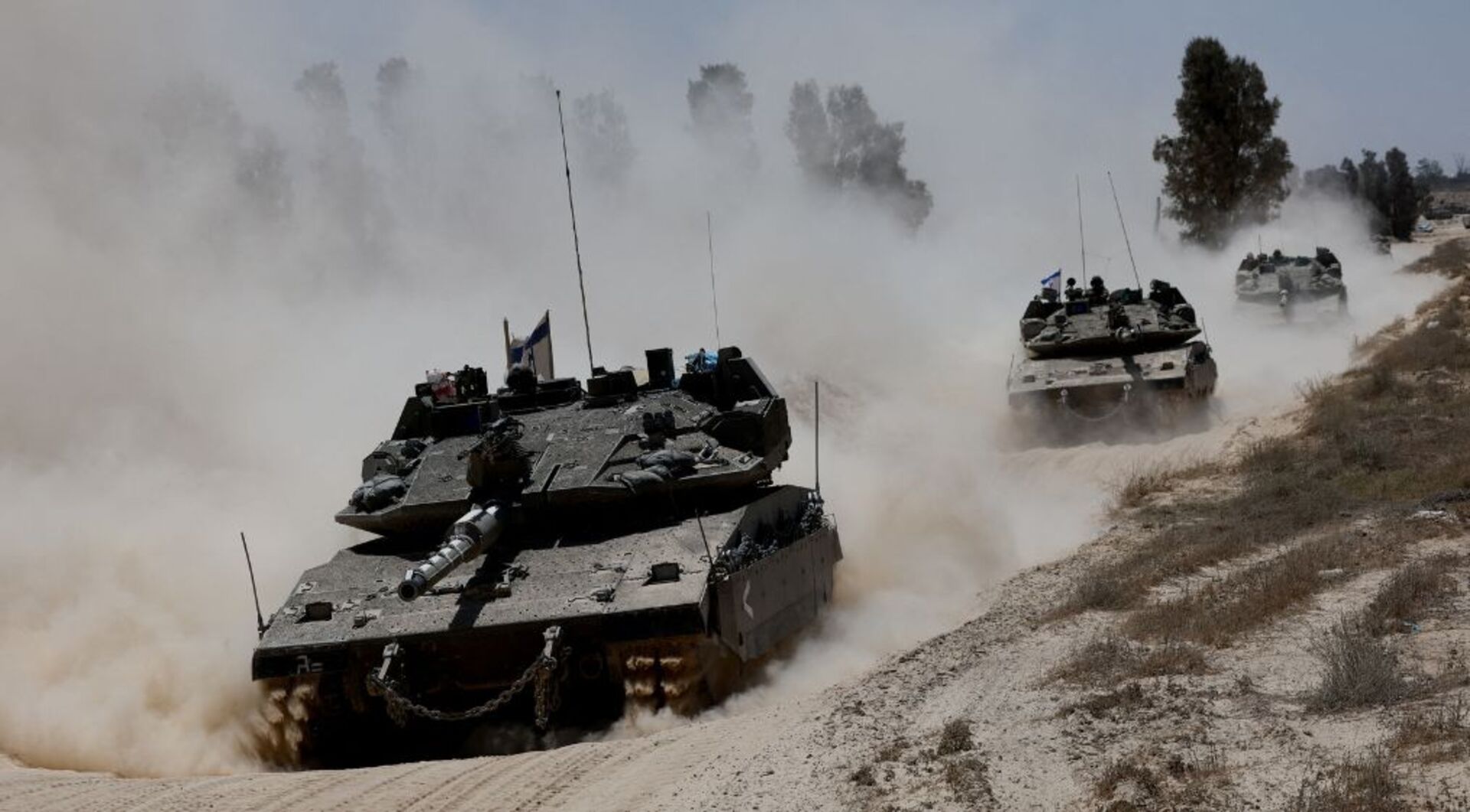
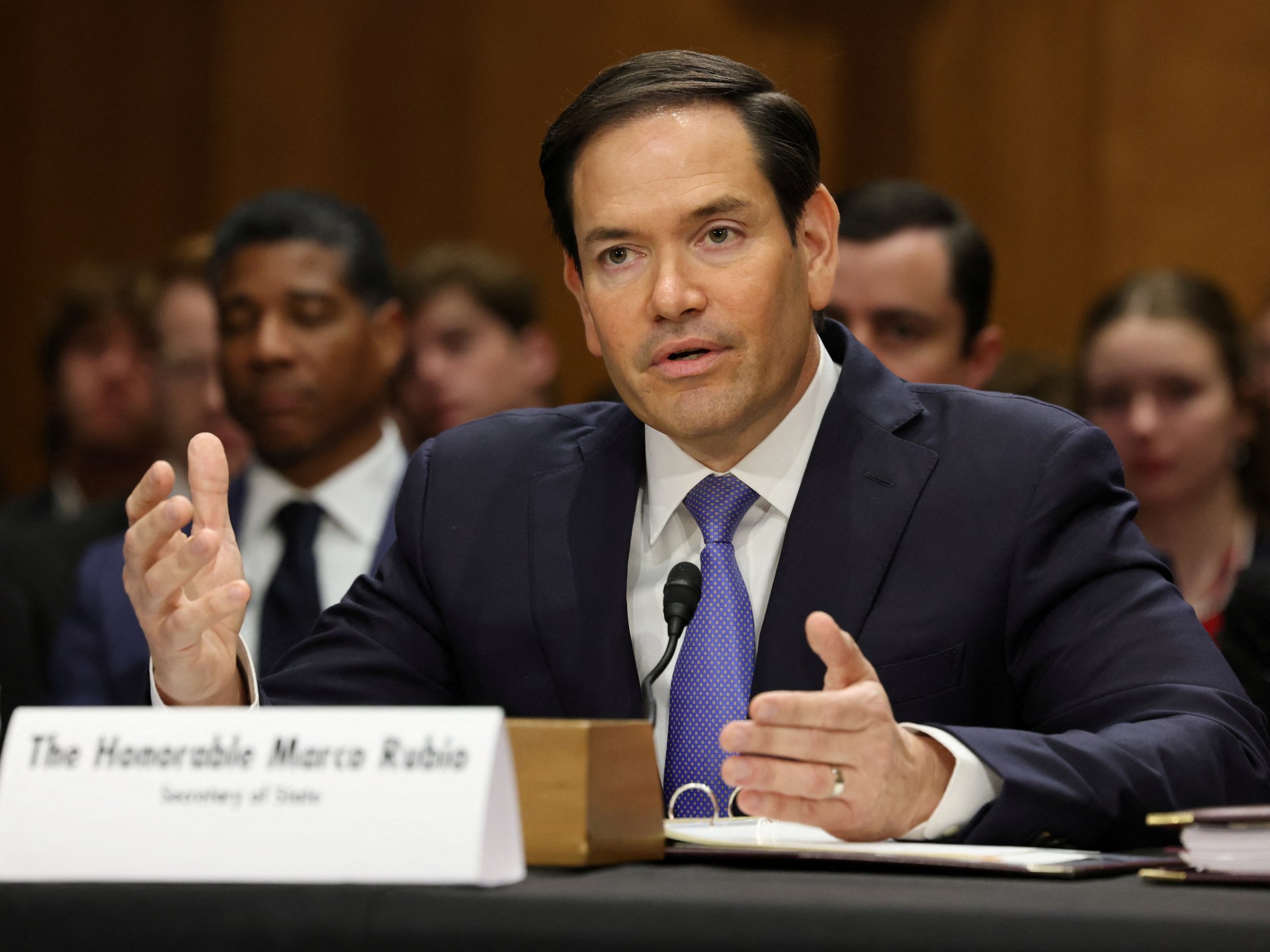
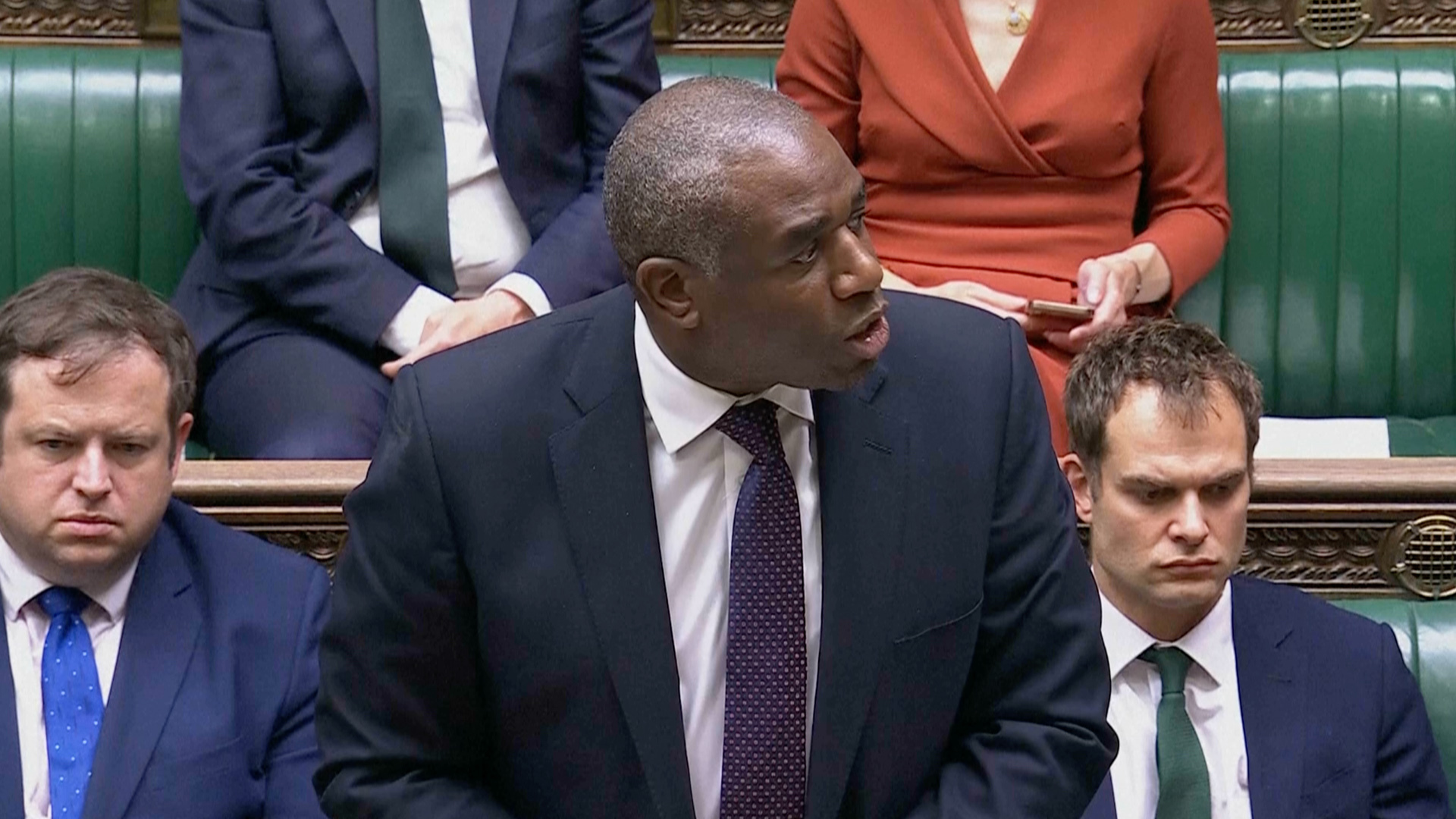

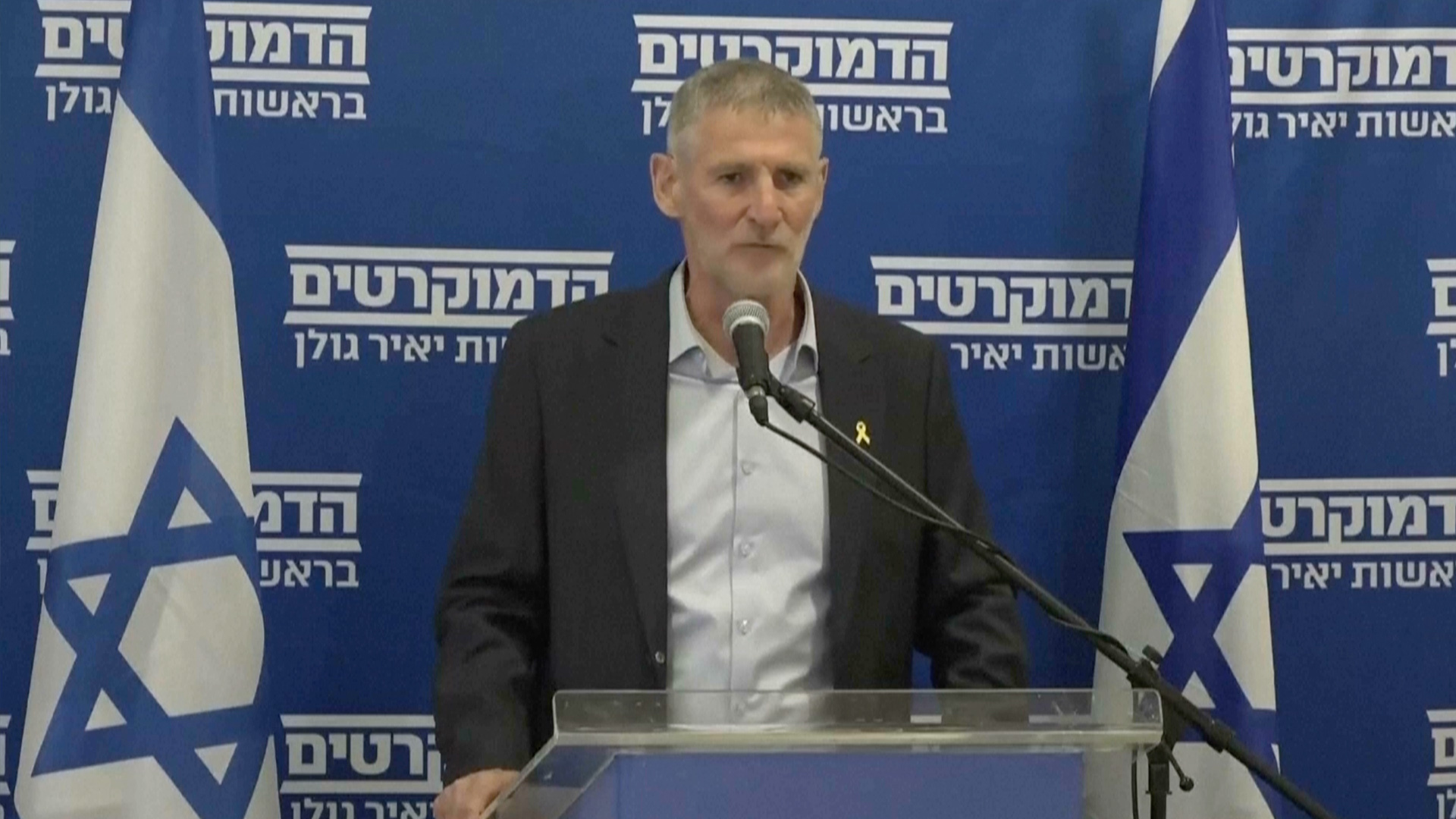
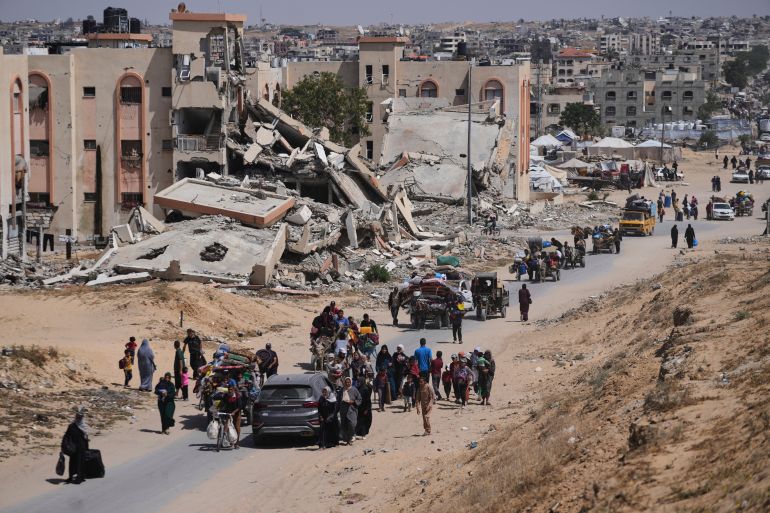



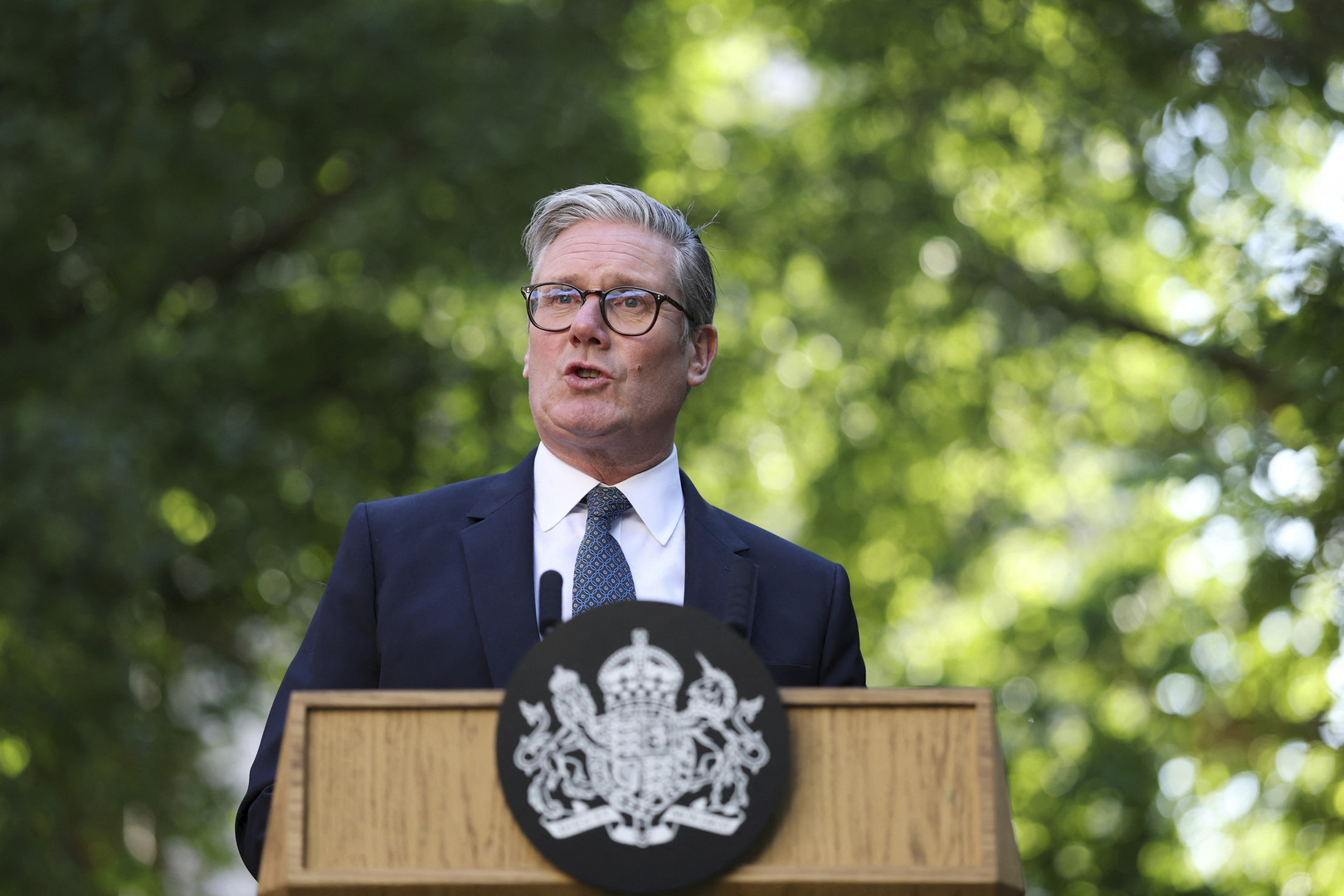
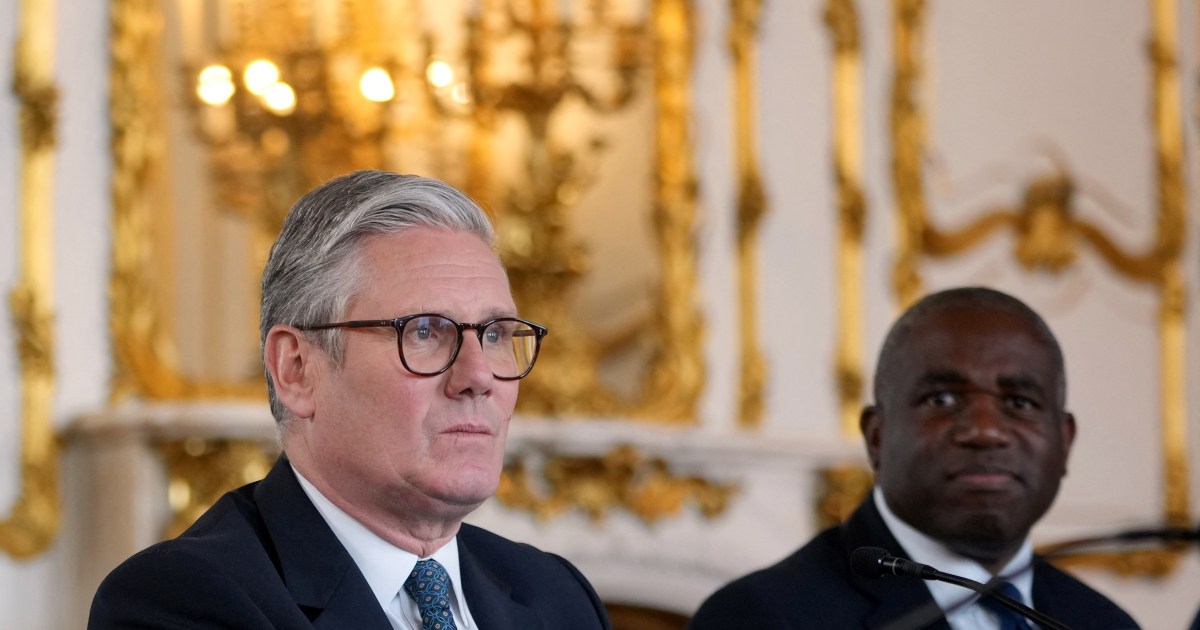
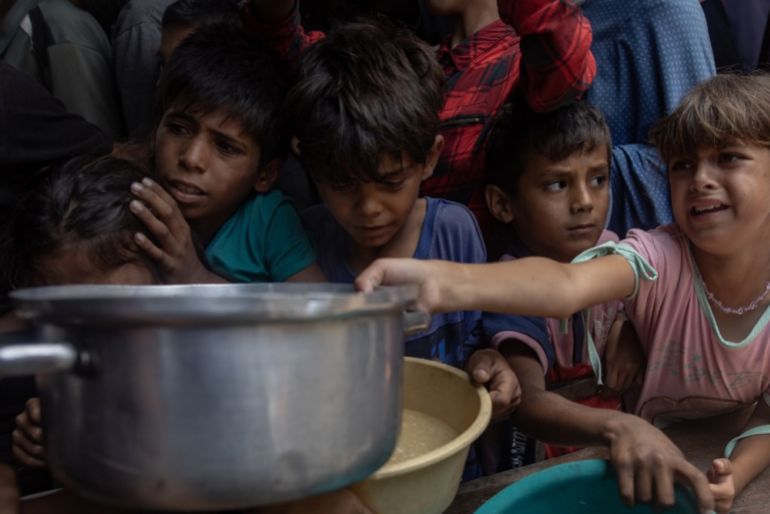




 What’s the status of the ceasefire talks?
What’s the status of the ceasefire talks?

